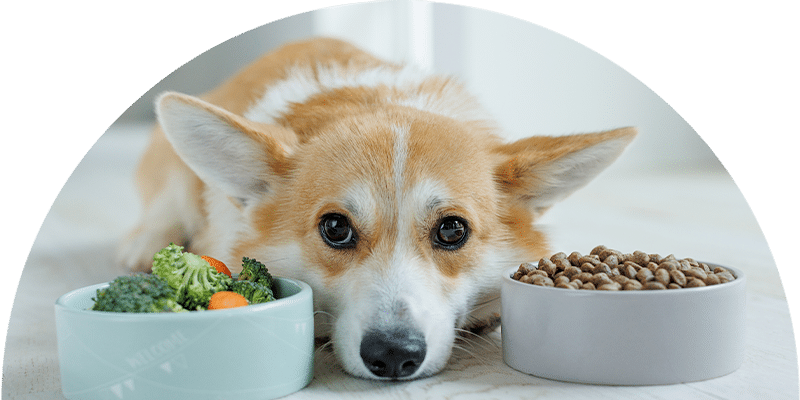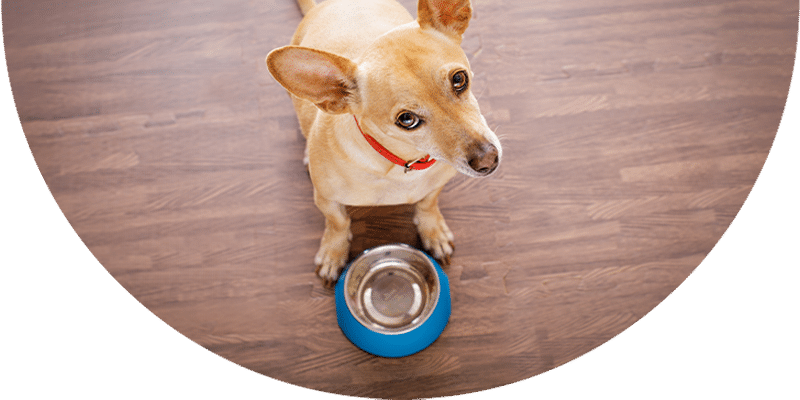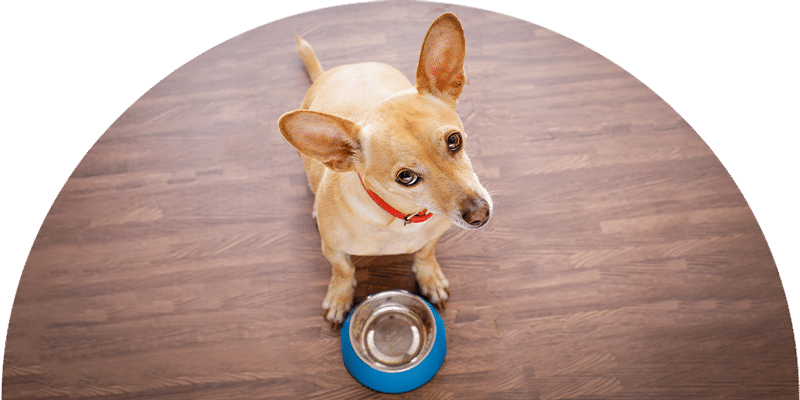Dog Nutrition: How to Feed Your Dog for Optimal Health
Is it important to feed my pet a life stages diet?
Life stages diets are typically divided into puppy food, adult maintenance food, and senior diets. At Love Animal Hospital & Urgent Care, we believe feeding puppy food is vital. The nutritional composition for a puppy is different from an adult that’s finished growing. However, senior diets are more controversial. There’s no standardization, so what one company calls a senior diet could be very different from another. We prefer to assess our older patients individually, considering their specific conditions and adjusting their nutrition for long-term benefits.
Is it important to feed my pet a life stages diet?
Life stages diets are typically divided into puppy food, adult maintenance food, and senior diets. At Love Animal Hospital & Urgent Care, we believe feeding puppy food is vital. The nutritional composition for a puppy is different from an adult that’s finished growing. However, senior diets are more controversial. There’s no standardization, so what one company calls a senior diet could be very different from another. We prefer to assess our older patients individually, considering their specific conditions and adjusting their nutrition for long-term benefits.
How do I wean my puppy onto an adult dog food diet?
The weaning process is usually simple for most puppies. When their growth is complete, take a one- to two-week period to gradually decrease the puppy food while increasing the adult maintenance food. Most dogs can adapt within a week, though some with sensitive stomachs may need two to three weeks.
How do I wean my puppy onto an adult dog food diet?
The weaning process is usually simple for most puppies. When their growth is complete, take a one- to two-week period to gradually decrease the puppy food while increasing the adult maintenance food. Most dogs can adapt within a week, though some with sensitive stomachs may need two to three weeks.

Should I feed my dog on a schedule?
At Love Animal Hospital & Urgent Care, we recommend scheduled feeding. When dogs free feed, they often overeat and become overweight. Meal feeding allows you to monitor your dog’s eating habits and detect potential health issues earlier. It’s also easier to control calorie intake and maintain a healthy weight. For dogs that prefer grazing, you can leave food out but limit the amount to control their daily calorie intake.
How do I know if I’m feeding my dog too much?
The most obvious sign is weight gain. It’s crucial to keep dogs lean throughout their lives to prevent chronic diseases that develop later in life. We recommend familiarizing yourself with body condition scoring. When viewed from the side, your dog’s abdomen should tuck up, and from above, they should have a waist in front of their hip bones. For fluffy dogs, feel along the rib cage – you should be able to feel the ribs easily without excess fat.


There are so many brands of food. How do I know if my dog is on the right food?
The best way to determine if your dog is on the right food is to observe them. Look for:
- A sleek, shiny coat with minimal dander
- Healthy, translucent nails (black nails should be shiny)
- Consistently normal stools
- Minimal flatulence and vomiting
- Consistent appetite
- Energy and engagement
When would my dog need a prescription diet?
At Love Animal Hospital & Urgent Care, we consider food as medicine. Prescription diets can benefit dogs with specific medical conditions such as:
- Food allergies or adverse reactions to over-the-counter foods
- Inflammatory bowel disease
- Kidney or liver disease
- Cognitive dysfunction
- Seizures
When would my dog need a prescription diet?
At Love Animal Hospital & Urgent Care, we consider food as medicine. Prescription diets can benefit dogs with specific medical conditions such as:
- Food allergies or adverse reactions to over-the-counter foods
- Inflammatory bowel disease
- Kidney or liver disease
- Cognitive dysfunction
- Seizures
Does my dog need supplements in addition to their diet?
Generally, a dog on a good diet that’s thriving and healthy doesn’t need supplementation. However, there are specific situations where we might recommend supplements:
- For breeds prone to arthritis, we may suggest joint supplements in middle age
- Omega-3 fatty acids can benefit older dogs’ joint health and cognitive function
Does my dog need supplements in addition to their diet?
Generally, a dog on a good diet that’s thriving and healthy doesn’t need supplementation. However, there are specific situations where we might recommend supplements:
- For breeds prone to arthritis, we may suggest joint supplements in middle age
- Omega-3 fatty acids can benefit older dogs’ joint health and cognitive function
Is a dog able to live on a vegan diet?
While dogs can theoretically live on a vegan diet, it’s challenging to meet all their nutritional needs without animal products. Many commercial vegan dog foods are deficient in essential amino acids. We generally don’t recommend vegan diets for dogs unless there’s a specific medical reason. If a vegan diet is necessary, we’d recommend working with a veterinary nutritionist to formulate a balanced, homemade diet.
Is a dog able to live on a vegan diet?
While dogs can theoretically live on a vegan diet, it’s challenging to meet all their nutritional needs without animal products. Many commercial vegan dog foods are deficient in essential amino acids. We generally don’t recommend vegan diets for dogs unless there’s a specific medical reason. If a vegan diet is necessary, we’d recommend working with a veterinary nutritionist to formulate a balanced, homemade diet.
Is wet food better for my dog than dry food?
The choice between wet and dry food doesn’t necessarily indicate nutritional value. The main difference is water content. Wet food may be beneficial for dogs needing more hydration, such as those with kidney disease or bladder stones. However, for most healthy dogs, good quality dry food is perfectly adequate and more cost-effective.
Common Dog Nutrition Myths
Myth: Byproducts in dog food are bad.
Truth: Byproducts in pet food are typically organ meats, which are highly nutritious and digestible for dogs. They’re not ‘waste’ products, but rather valuable sources of nutrients.
Myth: Human food always makes dogs overweight.
Truth: Weight gain is about calorie intake versus energy expenditure, not the source of the food. Overfeeding any food, including dog kibble, can lead to weight gain.
Myth: Free-choice feeding is always okay.
Truth: While some dogs can self-regulate, many will overeat if given unlimited access to food. Scheduled meal feeding is generally recommended to control calorie intake and maintain a healthy weight.
Common Dog Nutrition Myths
Myth: Byproducts in dog food are bad.
Truth: Byproducts in pet food are typically organ meats, which are highly nutritious and digestible for dogs. They’re not ‘waste’ products, but rather valuable sources of nutrients.
Myth: Human food always makes dogs overweight.
Truth: Weight gain is about calorie intake versus energy expenditure, not the source of the food. Overfeeding any food, including dog kibble, can lead to weight gain.
Myth: Free-choice feeding is always okay.
Truth: While some dogs can self-regulate, many will overeat if given unlimited access to food. Scheduled meal feeding is generally recommended to control calorie intake and maintain a healthy weight.
At Love Animal Hospital & Urgent Care, we’re committed to helping you make the best nutritional choices for your dog. If you have more questions about your dog’s diet or overall health, please don’t hesitate to reach out. You can call us at (657) 756-5683, visit our website at Love.vet, or stop by our clinic at 16161 Springdale St, Huntington Beach, CA 92649. Your dog’s health is our priority!

